Amidst the pressing plastic pollution crisis in the Philippines, a trailblazing project is underway at the Port of Batangas. It is banning single-use plastics, changing habits, and upholding a long-term commitment to a future free of plastic pollution.
Port Batangas’ Commitment to Prevent Waste Leak into the Ocean.
Ports serve as crucial intersections between local communities and the ocean. As a matter of fact, these also become pathways for plastic waste to leak into the environment.
“The ports play a big role because they can prevent waste from directly spilling into the oceans, and they can also teach their passengers the importance of managing waste and how this benefits the environment,” says Suzie Huelgas, Chief Safety Officer of the Philippine Ports Authority at the Port of Batangas.
The Port of Batangas — the second largest seaport in the Philippines with more than 6.5 million passengers yearly — is working with WWF-Philippines. The project is called the Clean Ports, Clean Oceans: Improving Port Waste Management in the Philippines project. This project is funded by the Grieg Foundation and implemented in partnership with the Grieg Group. It aims to reduce plastic waste leakage by 50% in the Port of Batangas, the Port of Cagayan de Oro, and the Manila North Harbour Port.
[Access the project brief here]
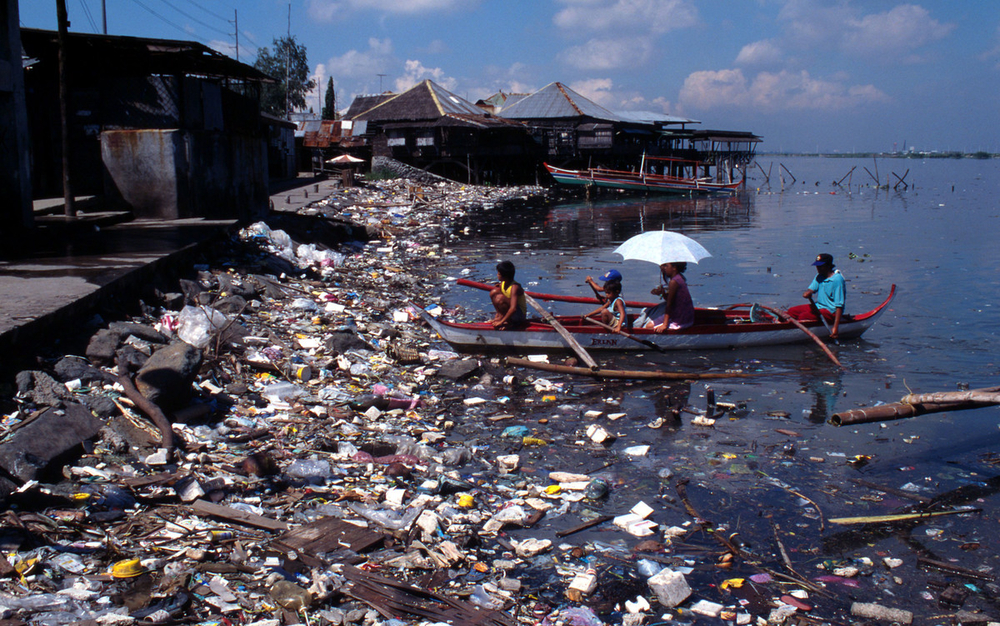
Understanding the problem of plastic pollution
The causes of plastic pollution are complex. Understanding the issue at hand is crucial to create effective solutions. In 2021, the port authorities, together with WWF, conducted a baseline study on solid waste management in Philippine Ports. It is one of the most recent studies of its kind in Southeast Asia.
The study found that about 115,000 kilograms of plastic waste are generated from ports. More over, almost 129,000 kilograms from vessels per year. The Port of Batangas generates 43,443 kilograms of waste, of which an estimated 12% leaks to the environment. This became the basis for an action plan to address the issue.
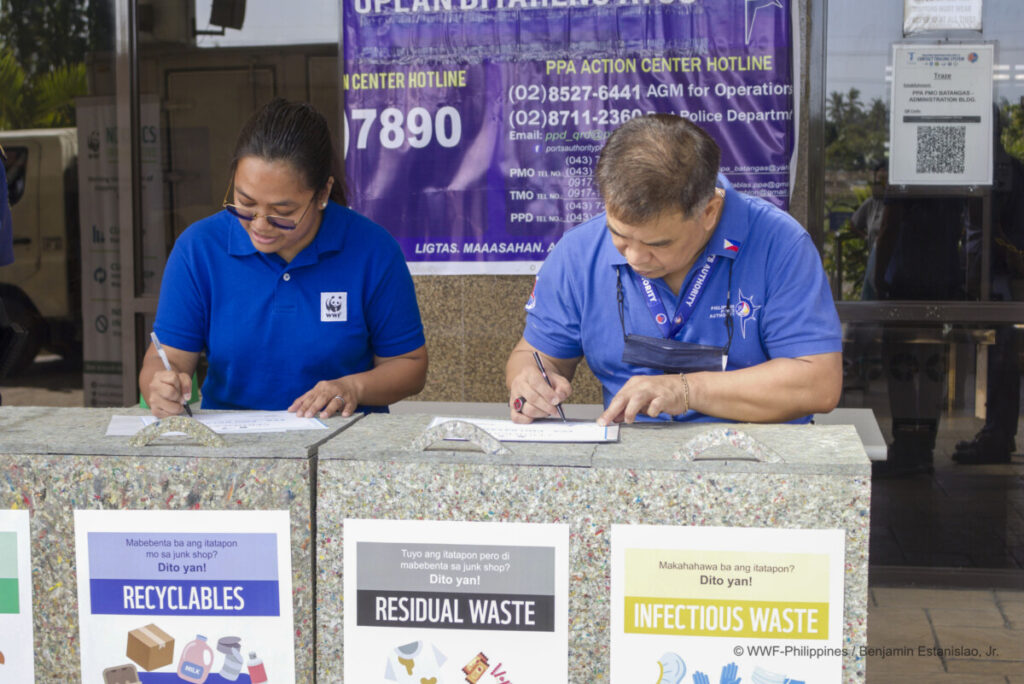
“The baseline study allowed us to establish just how much plastic waste is generated by our port; so with that idea in mind, we now know what steps to take to reduce our waste,” says Huelgas.
The Port of Batangas thus sets a significant precedent for data-informed decision-making. The port authorities’ formal endorsement of the action plan signifies a meaningful step forward. It is emphasizing a commitment to effective, data-driven solutions.
The tools to change human behaviour towards plastic problem: Implementation of banning single-use plastics
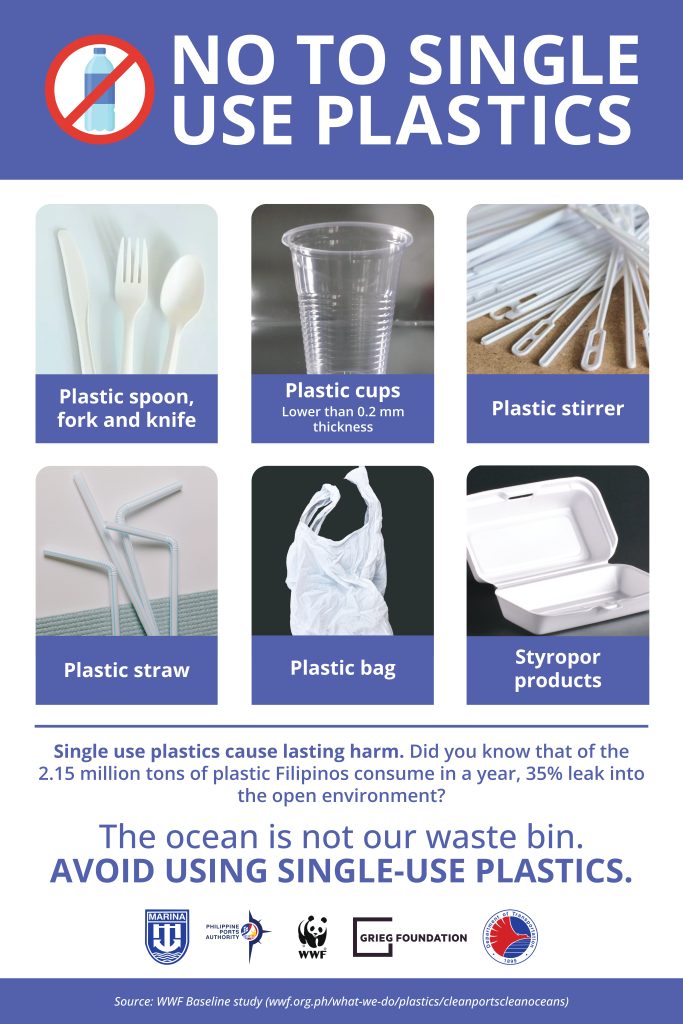
A pivotal element of the project at the Port of Batangas lies in the port’s commitment to the implementation of a ban on single-use plastics. Single-use plastics have wreaked havoc on our oceans, ecosystems and communities, causing irreversible harm.
In 2021, the Philippine Ports Authority banned single-use plastics in its ports. Hence, the Port of Batangas, paving the way for ambitious actions to fight plastic pollution. Around 9.45% of the Port of Batangas plastics are single-use plastics. Such as PET bottles, tetra packs, plastic straws and cups.
Behavioral change is essential to achieve waste reduction goals. Tangible measures have been set in motion at the port, aiming to not only tackle the issue head-on, but also bridge action with awareness. The project employs several tools to influence behavioral change, including the strategic placement of clearly labeled recycling bins made of recyclable materials and weekly plastic collection events led by the local social enterprise Plastic Flamingo.
Recycling bins made out of recyclable materials
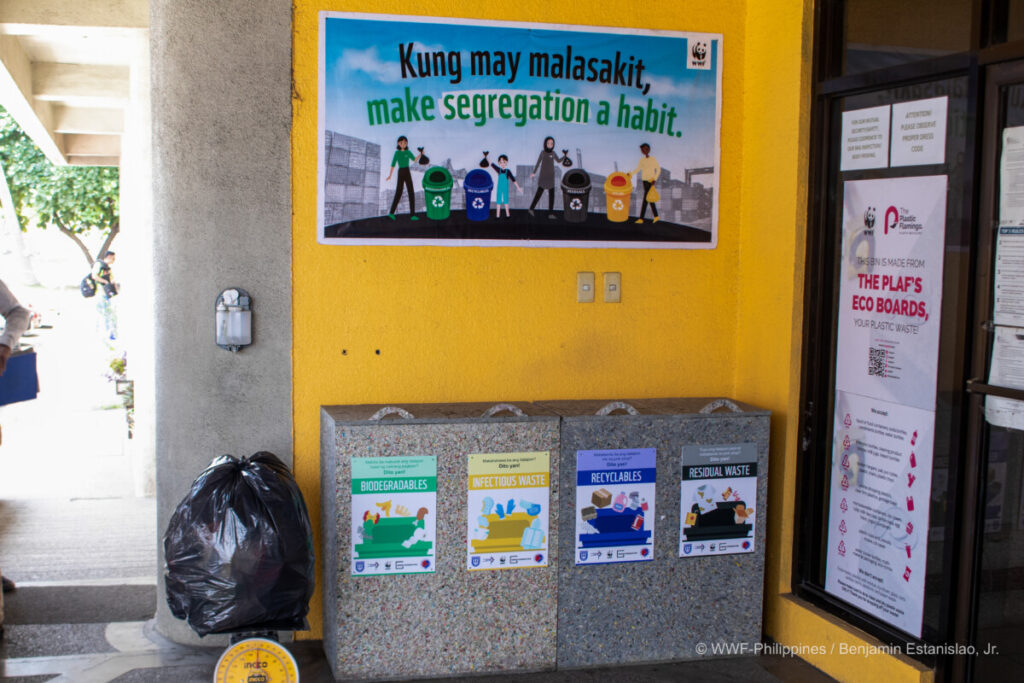
In addition, infomercials rolling across the digital screens and signage within the port premises help increase passengers’ and visitors’ awareness of the far-reaching impacts of plastic pollution, the significance of waste segregation, and the ban on single-use plastics.
Since the start of the project in 2020, the goal was to reduce the amount of waste leakage at the port by 50%. As of date, the preliminary results show that the ports have achieved a significant reduction. The port aims to continue the interventions by monitoring compliance with its ban on single-use plastics. That will provide more support for utility workers, and constructing a port materials recovery facility.
The Port of Batangas’ resolute efforts against plastic pollution stand as a beacon of hope. Amidst a challenging backdrop, the introduction of recycling-based bins, informative communication, comprehensive training, and a visionary ban on single-use plastics showcase a commitment to change. Through a data-driven approach and a dedication to altering mindsets, the port propels a transformation that extends far beyond its shores, ushering in a more sustainable future for all.
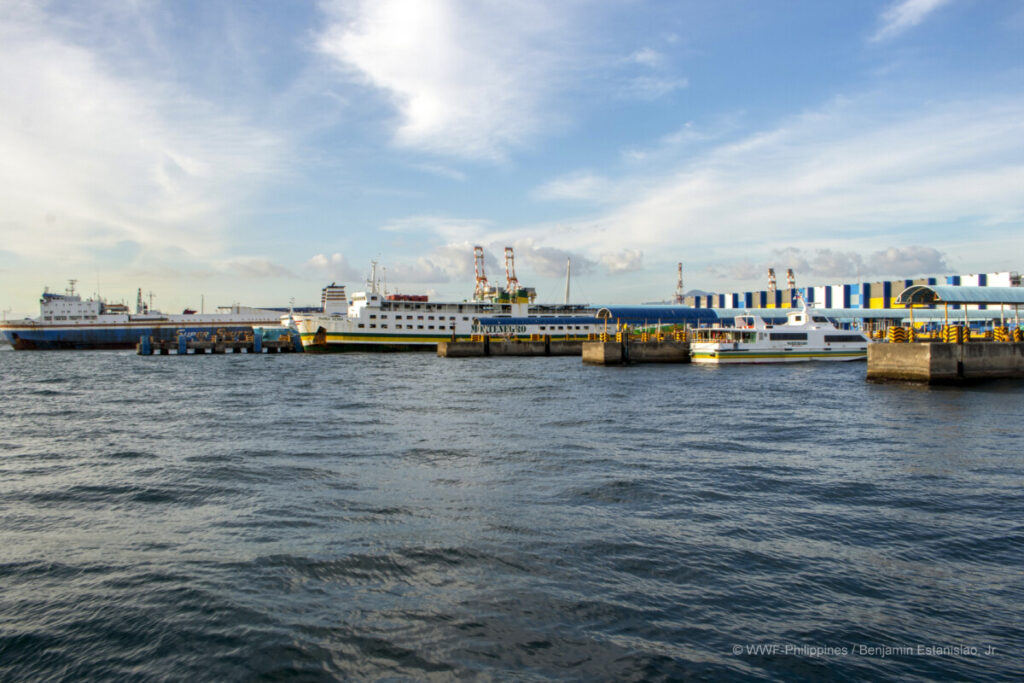
This article was originally published here.


